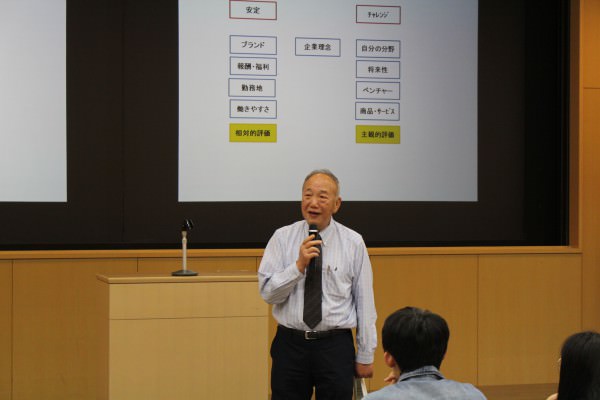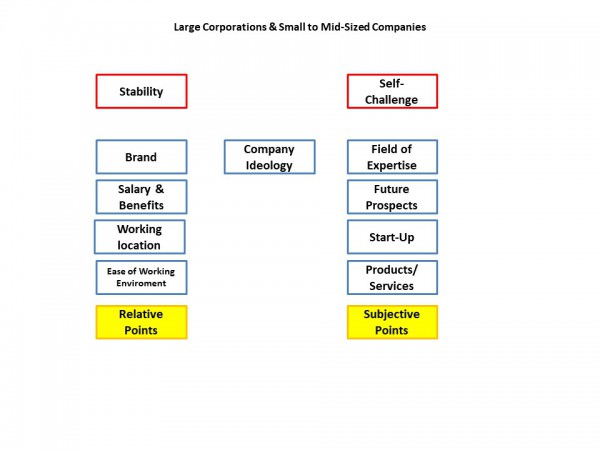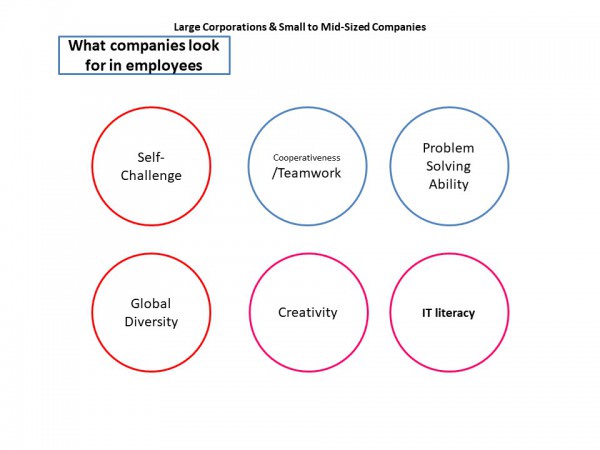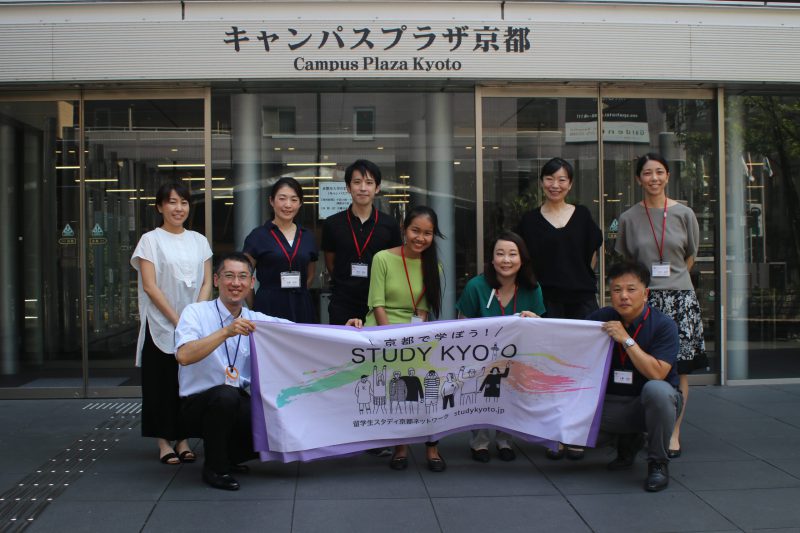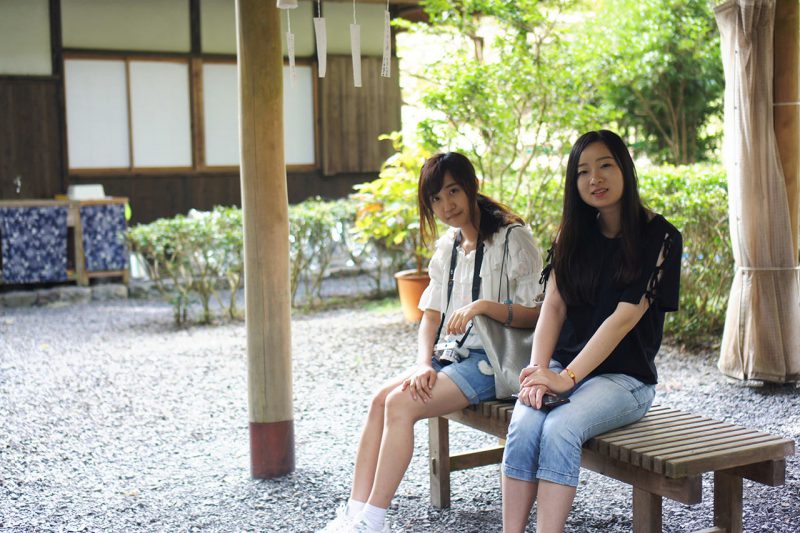Kyoto Companies & the International Student Job Search – from the 2018 Paid Internship Seminar –
2018.06.13
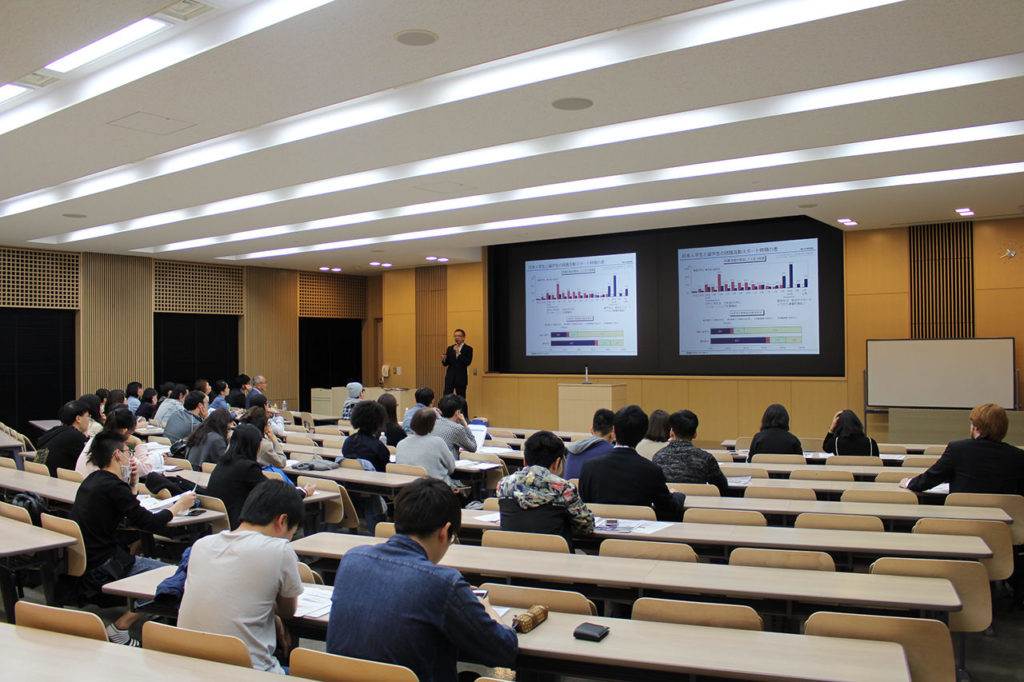
In advance of the start of 2018’s paid internship program for international students, an informational session was recently held here in Kyoto. The session included an overview of the program as a whole, as well as a variety of information meant to empower international students as they begin thinking about their job searches in Japan.
The Job Hunting Environment in which International Students find themselves….
Mr. Yamamoto of the National Students Information Center (Nasic) began by explaining the Japanese job hunting system.
Japan’s Unique Job Hunting Schedule
Mr. Yamamoto: Unlike in other countries, where students begin their job search after graduation, in Japan, it’s standard for students to begin job hunting while they’re still in school.
Typically, internships begin in the summer of the third year of college, and applications to companies begin in March of the third year. Official selection begins in June of the students’ fourth year, and official job offers (“naitei”) will be awarded in October. This, however, is just the public schedule: according to a survey conducted by a private company specializing in job hunting information, by May 1st, 42.2% of fourth year students have already received a job offer.
Japanese students begin preparing for their job search much earlier than international students, who, unaware of this schedule, can be said to be at a disadvantage. If you want to work at a Japanese company, it’s important to begin your search at the same time as your Japanese peers.
Large Companies Require Lots of Paperwork
Mr. Yamamoto: When you apply to work at a large corporation in Japan, in most cases you’ll be required to submit an “entry sheet”—an application format particular to that company.
Entry sheets usually ask you to write your reason for applying to work at the company, and about your experiences in university. Even amongst Japanese students used to writing them, it’s said that preparing an entry sheet takes two to three hours. For international students, the required time is probably longer, consider that they’re going to be making such a document in a language that isn’t their mother tongue. Some companies require entry sheets to be handwritten, which requires extra effort yet again.
If you apply only to big corporations, you’ll end up these entry sheets on a massive scale, which, given the great effort required, may not always be realistic for international students.
In a country of “regular employees,” skill-based employment is rare
Mr. Yamamoto: Most companies in Japan follow a practice of hiring new graduates en masse as “regular employees,” and determining their assigned division only after hiring.
Not hiring new graduates by specialty or job type is an unusual principle by international standards, and many international students may feel uncomfortable with it. But if you try to find a job by only searching for your field or specialty from university, Japanese companies won’t look on you favorably, and your job search will become much more difficult.
In many cases, large corporations don’t treat international students specially (i.e. differently from Japanese students), but many small- to mid-sized companies have different policies.
When small or mid-sized companies consider hiring international students, they often keep in mind a particular job they would assign to such students once hired. A greater percentage of smaller companies will enthusiastically hire international students who are native speakers of a language in a market they’re hoping to develop, and a great number of such companies will have special hiring practices for international students. I think many international students want to do “international work,” or “work that connects Japan and [their] home country,” so I highly recommended not limiting yourself only to big corporations, but to also consider small- and mid-sized companies in your job search.
This paid internship program includes many companies that may be small in size, but actively accept international students. I hope you will use this as an opportunity to learn a bit more about a variety of different companies.
Considering what’s important to you in a job: the merits of Kyoto area companies and the goal of the internship program
The next speaker was Kyoto Prefecture’s International Division Councillor, Mr. Miyagawa, who shared a message for international students facing the start of a job hunt in Japan.
Mr. Miyagawa: We just heard from Mr. Yamamoto that it’s better to look at a variety of companies, and not only to set your sights on the big ones, but those of you who still want to aim for a big company anyway, raise your hands.
(In response to Councillor Miyagawa’s gentle question, several listening students raise their hands.)
Mr. Miyagawa: That’s what I thought. (laughs) Don’t be shy—more of you can raise your hands. (laughs)
I used to work for Omron. But when I joined the company, it was still known as Tateishi Electronics. Even within Kyoto, the company was a medium-sized business, and not that well-known.
So when I joined, Omron wasn’t a big company, and I had no particular desire to work at a big company, but by the time I retired, the company had grown significantly.
What to look for in large and small companies
Mr. Miyagawa: As you can see in this illustration, when it comes to large companies, stability and brand power are big things that students look for.
So what about small/medium companies? The word “challenge” (to challenge yourself) is up there.
Things like stability and brand power are the kind of points you may find to be positive relative to other people, whereas things like opportunities to challenge yourself or apply your specialized field of knowledge are subjective positives.
If you want to work in your field of expertise, or challenge yourself by becoming an entrepreneur, small/medium companies might be for you. The benefits of working for a small or medium-sized company is that their aim in hiring you is often clear, and the scope of the work will be broad. I’d also like to point out that the starting salaries at large and smaller companies are about the same.
When you’re deciding on a job, I’d like you to consider the following: whether or not you’ll be able to contribute there, and what you’re really looking for in a job.
What companies look for in employees
Mr. Miyagawa: I put together a slide of the characteristics that companies often look for in the people they hire.
Things like “self-challenge,” “global diversity,” and “creativity” are qualities that international students have greater strength in compared to their Japanese peers.
Japanese students might excel more with traits like “cooperation,” but that doesn’t mean you have to try to be just like them.
Be confident in yourself, and emphasize what makes you a good candidate!






